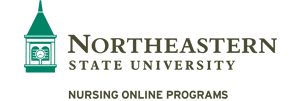Nurses work with patients from all walks of life and must regularly adapt their approach to provide patient-centered care. Transcultural nursing is a critical concept in healthcare that ensures nursing professionals can do this by being sensitive to cultural differences. By providing culturally competent care to individuals, families and groups from diverse backgrounds, nurses can contribute to the delivery of effective, respectful care tailored to every patient’s unique needs.
Northeastern State University’s online Registered Nurse (RN) to Bachelor of Science in Nursing (BSN) program recognizes the significance of transcultural nursing and its impact on the quality of care and outcomes. The curriculum includes opportunities for students to explore this topic and learn how to approach patient care with cultural awareness. The program’s Transcultural Nursing course hones these skills and demonstrates how nurses can successfully reduce health disparities through culturally sensitive practices.
History of Transcultural Nursing
Transcultural nursing stems from the pioneering work of nursing theorist Dr. Madeleine Leininger, often regarded as the founder of this nursing discipline. Her contributions and ideas have laid the foundation for transcultural nursing, sometimes called culture care theory.
“Transcultural,” in this context, means studying the differences and similarities among cultures. At its core, transcultural nursing seeks to understand culture’s role in shaping individuals’ beliefs, including how they view health and interact with healthcare providers. Nurses practicing transcultural care must look beyond their own cultural perspectives to appreciate and respect the varied cultural backgrounds of patients.
Why Is Transcultural Nursing Important?
In transcultural nursing, nurses consider patients’ cultural nuances to offer better care. More specifically, Leininger’s goals with this approach were “to provide culture specific and universal nursing care practices for the health and well-being of people” and “to help them face unfavorable human conditions, illness, or death in culturally meaningful ways,” as noted in the Journal of Professional Nursing. This perspective allows nurses to identify and address various issues related to providing healthcare to individuals from diverse cultural backgrounds.
Some of the critical issues transcultural nursing can address are:
- Communication barriers. Language barriers and differences in communication styles can impede care delivery. Transcultural nursing emphasizes utilizing interpreters, acting with cultural sensitivity and appropriate nonverbal communication to overcome communication gaps.
- Health disparities. Certain cultural groups may experience health disparities, such as higher rates of specific diseases or lower access to healthcare. Transcultural nursing seeks to identify these disparities and work toward tailoring culturally appropriate interventions that improve care access for all.
- Misunderstandings. Stereotypes and misconceptions based on cultural biases can lead to misdiagnoses and lower-quality care. Transcultural nursing encourages nurses to examine their biases and approach each patient with cultural humility.
- Care planning. In some cultures, healthcare decisions are made collectively within families or communities. Being aware of these decision-making dynamics and any religious, spiritual or alternative medicine preferences is essential to patient-centered and end-of-life care that respects cultural values.
- Nurse-patient relationship. Building trust and rapport with patients is crucial but sometimes challenging. Understanding and respecting a patient’s cultural background can help nurses establish trust. As a result, patients can experience higher satisfaction with care and adhere more firmly to treatment plans.
How Nurses Can Provide Transcultural Care
To provide transcultural care, nurses perform a culturological assessment that documents an individual’s cultural background. Nurses then use this information to develop an appropriate care plan.
Improving transcultural awareness and behaviors is an ongoing process that requires commitment, self-reflection and continuous learning. Nurses may strengthen their skills and knowledge by engaging in cultural competence education and workshops, staying updated on the latest research and exploring their implicit biases and beliefs.
Northeastern State University’s online RN to BSN program introduces students to transcultural nursing best practices, which continue to evolve alongside a more diverse population. Nurses who embrace transcultural nursing can contribute to more equitable and effective healthcare delivery that overcomes disparities and improves outcomes for all patients.
Learn more about Northeastern State University’s online RN to BSN program.


